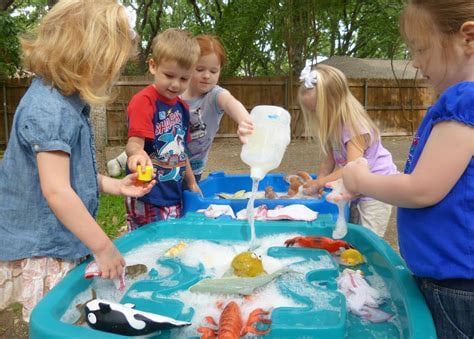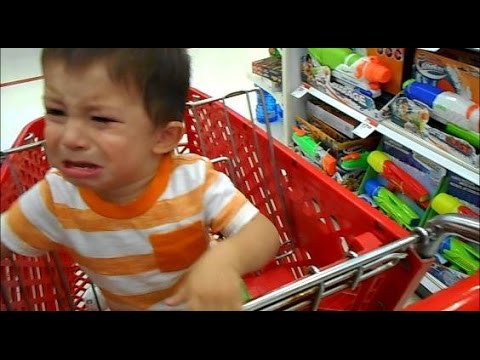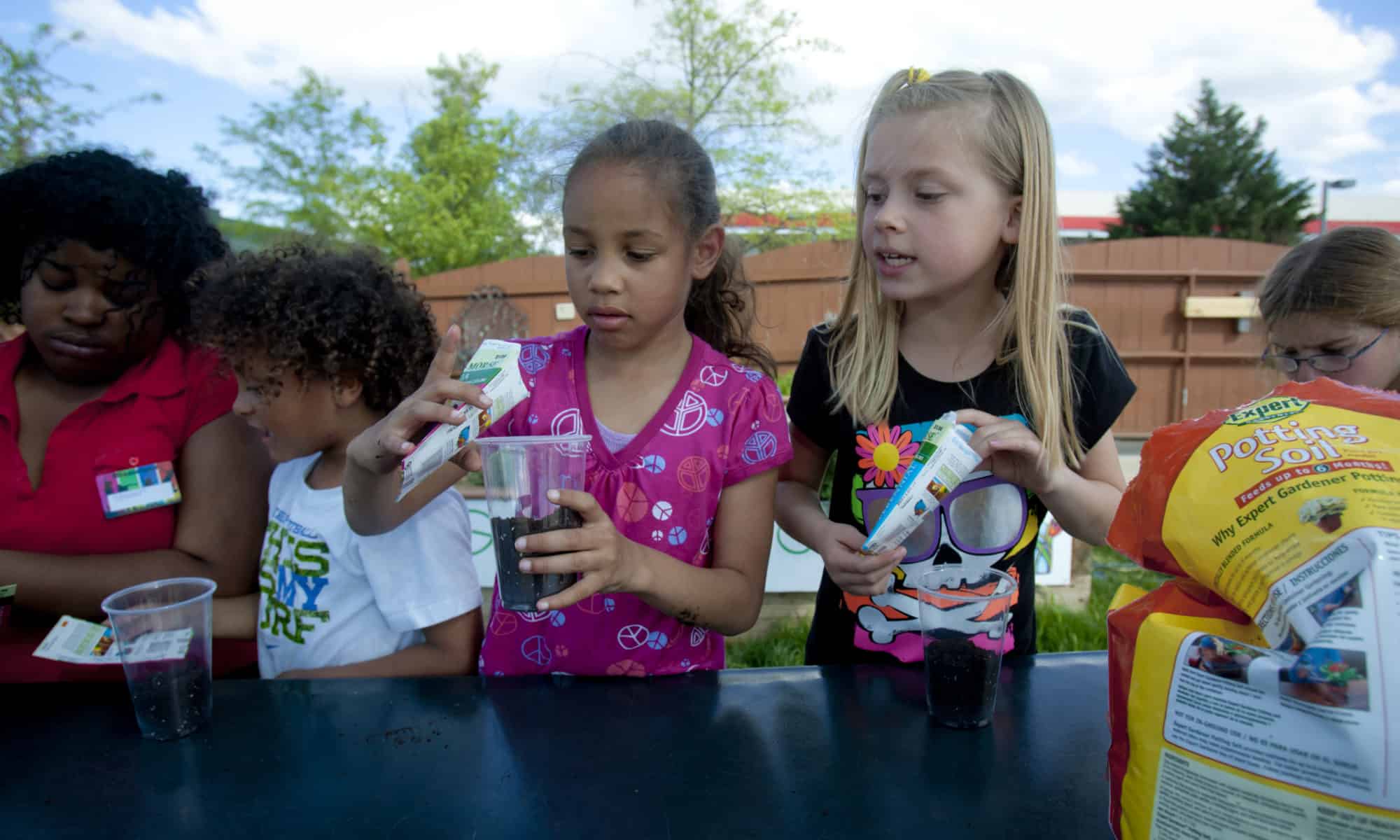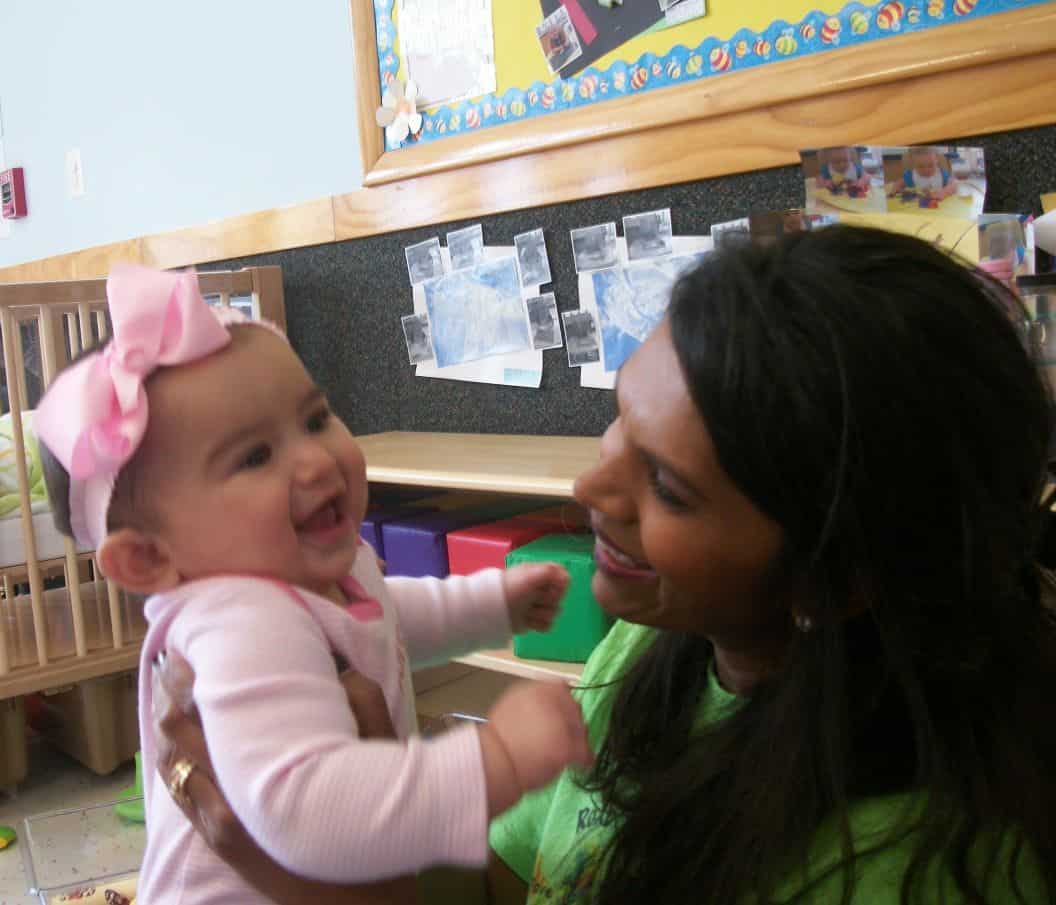Water – Refreshing And Educational for Your Child
Separation Anxiety

Wasn’t it nice when your infant preferred you to anyone else on the planet? Now that your child is bigger, though, and he falls apart whenever you head to the bathroom without him, his attachment seems downright obsessive. He’s experiencing separation anxiety, a developmental phase that nearly all children go through during their early years.
Why separation anxiety happens
At around 6 months, your baby begins to realize that you and he are separate, which means that you could leave him. He’s also capable of “representational thinking” now, which means that he can picture objects (like you) in his mind after they’re no longer visible. In other words, out of sight no longer means out of mind. (This is one reason why he suddenly gets such a kick out of “peekaboo.”) As your child grows into toddlerhood, he’s developing a strong drive for independence, but he still needs your undying support. All this can lead to a fear that you’ve abandoned him whenever you’re not there.
What to do
Wave bye-bye when you leave. It’s a simple tactic but one that many parents ignore. Instead, fearing the wrath of their toddler, they try to sneak out while he’s otherwise engaged. This approach may save you the pain of watching your child cry, but it can actually make his separation anxiety more severe.
Help your child look ahead.
Although your child’s ability to communicate is still hindered by his limited vocabulary, he understands much more than he can say. So, prepare him for your departure. Make sure your child knows where you are going and when you’ll be back. You may also want to give him details, such as who will be watching him and what sort of activities he can look forward to doing.
Allow your toddler and his caregiver to get engrossed in an activity before you leave. When the time comes for you to go, give your child a quick kiss goodbye and make a beeline for the door. He may still cry, but the activity can serve as a distraction soon after your departure.
Let him learn to cope. No parent wants her child to feel any unnecessary sadness, but coping with separation is one of the many stresses your child will have to learn to manage in life.
Source: Dawn Margolis, Baby Center
How to Handle the Curiosity of a Toddler
“WHYWHYWHY:” why does this word and the never-ending repetition of it make up a toddler’s entire vocabulary? How do we deal with the curiosity that comes from such a simple question? Toddlers are known to be curious little things that never seem to sit still. We can always count on them to be tottering half a room away looking for the next item on the list for destruction. When toddlers continuously ask us the ‘why’ question, they are trying to make sense of the world around them. While it may seem easier to just give them the whole spiel on why it’s raining, that’s not how toddlers’ brains work. They need to make sense of the answers they get one step at a time. They learn new things everyday through observation and little facts. Berate them with a bucket of facts on how the world works and you’ll have one very confused tot.
Stumped by some of the questions your little one asks you? You are definitely not alone. Toddlers ask so many questions that there are a number of books out there just to help parents answer them. Catherine Ripley’s Why?: The Best Ever Question, and Answer Book About Nature, Science, and the World Around You are two great books that you can take advantage of. Brain Quest also has a lot of games with questions and answers for toddlers and parents alike.
Public Tantrums? Here’s How to Handle Them
Another tantrum in the store?
Ah…the beloved moment when your child begins to act as a human windshield wiper against the grocery store floor. It’s a humbling experience for all to go through a public temper tantrum. We’ve gathered some tips and thoughts on how to turn the embarrassment level from a 10 to a 5. Let us know what you think.
- Before going anywhere, try to stock your bag with snacks and drinks. Sometimes all it takes for a meltdown is a want for food. Sure, your food may not be the object of desire as you stroll by the chocolate chunk cereal….but it may appease the anger for a little longer.
2. Be an example of how to act: You want to pull your hair out. We get it. Completely. But your toddler doesn’t need to know this. This fact may only make your little one more upset. Stay calm and take deep breaths. Rushing out of the store won’t make your child any more calm. In fact, it may cause more agitation. Once out of the center of attention, keep your wits. Don’t attempt ending the ordeal quickly. Rushing the process is a recipe for disaster. Sit down with your little one and let them know you understand how they’re feeling. Pat them on the back or sit them in your lap. Let the little one know it’s okay to have bad feelings but that it’s time to calm down.
- “What can I do for you?”: Asking a question like this lets your little one know you are on their side. It does not mean you will give them what they want, but opens up a dialogue to explain the situation. Maybe they can’t have that lollipop because it has too much sugar…but they can have an oatmeal bar! No matter what – don’t give in to the reason of the temper tantrum no matter what. It will only make your child realize that all they have to do is throw a fit to get anything they want. Stick to your ground and keep calm. You’ll get through it…we promise!
Minnieland Academy provides early childhood education and care for infants through school-age children.
Founded in 1972 by Chuck and Jackie Leopold, Minnieland Academy has provided Virginia families with the best early childhood education and care for over 40 years. We have over 60 schools that serve infants through school age children, helping them develop in a loving environment. We believe that learning is fun, and our Kid Steps curriculum provides age appropriate education at every level of their growth.
Come tour one of our schools and become part of the Minnieland Academy Family! https://www.minnieland.com
Little Green Thumbs Grow Healthy Children
What Determines a High Quality Child Care Provider?
Choosing the Best Child Care for Your Child
How To Choose Age-Appropriate and Safe Toys
 Few things give your child more joy than a new toy (except for maybe the box that it came in…). Toys help to create a vast colorful world of endless wonder and make-believe you and I can no longer really “see”.
Few things give your child more joy than a new toy (except for maybe the box that it came in…). Toys help to create a vast colorful world of endless wonder and make-believe you and I can no longer really “see”.
Unfortunately, toys today may also pose a threat if not selected properly. There are toys that unsafe and not appropriate for the age of our children. It is important for us to scrutinize toys we want to give our children first, before handing them over.
Here are some tips on how you can choose age-appropriate and safe toys for your children:
- Check the package- Toys come with an age recommendation and some with safety instructions, be sure to read these instructions first to prevent injury. There are toys that are only ideal to 6 years old and above since these contain small parts that little ones can swallow.
- Evaluate its durability- Is it strong enough not to easily break? It is a risky to have toys that can easily shatter into pieces and cause its small parts to scatter around or scratch your child.
- Look for safe ingredients- You can find what makes up a toy in its own packaging. Check the ingredients and see if there are hazardous elements!
- See if it is educational and developmentally appropriate- We want our kids to not just have fun, but also learn from their toys. Today there are ample toys available that are developmentally appropriate for your child’s age.
- Choose simple toys- The simpler they are, the wider the imagination of your kids when playing. Toys that are too specific offer less room for the imagination as everything is already set out for them.
- Give one toy at a time- Give your kids time to enjoy the a few toys first, so they will really maximize the enjoyment of those toys. While an argument can be made that one can never have too many toys – too many at once for a child can be less than ideal.
- Understand the learning needs of your child based on his age- For instance, children who are 2-4 years want to stimulate their imaginations, while babies from 6-8 months do well with repeatable activities.
- Be careful with electronic toys- Toys that are powered through batteries and electricity are risky to children especially toddlers and babies. They can try to plug and unplug or even taste the batteries.
Helping Your Child Adjust to Preschool
It’s not uncommon for parents to have to deal with their children not wanting to leave them, and sometimes even once they begin attending preschool, they can still have difficulty adjusting.
So, what can you do to help your child ease into preschool?
- Let your child know that tomorrow is a school day. Say it to them with a lot of excitement, so they will feel excited as well. Talk to them about what they can expect, and be sure to mention the fun things like story time and playtime.
- Help them prepare their things the night before. Encourage your kids to prepare their school supplies, and even snacks, the night before. Make it sound exciting and tell them how much fun they’re going to have using their new school supplies.
- Wake them up early. This will prevent delays and arriving to school late. Waking them up early will help eliminate their grogginess before they begin their school day. It will also keep them from feeling embarrassed if they show up late.
- Prepare their favorite breakfast for them. Start their day right with their favorite meal. It will make them happy, which sets a good tone for the day.
- Help them to their classroom. If they do not want you to leave, stay for a few minutes while they sit down at their chair. Then, leave quietly once the teacher starts.
- Be early to pick them up and ask them about school. Show them that you are interested in their school, so they feel your support. This will also prevent them from becoming scared if you are not there to pick them up on time.
- Observe how they feel. Ask them how they feel about school and gather hints of possible reasons they may not be adjusting well.
- Have a consistent routine. Make pre-school preparation a routine for them so they become comfortable with it. Always have the same schedule each day from the time they wake up until you pick them up.
- Partner with their teacher. Talk to your teacher and ask them how they can help your child adjust to school. Let them know how your child feels and discuss what may be causing their reluctance about school.












